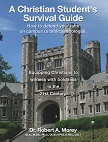What is the Meaning of Hosea 6:7?
By Dr. Robert A. Morey
https://njiat.com/apologetics.html
But they like men have transgressed the covenant:
there have they dealt treacherously against me.
Hosea 6:7 (KJV)
The dogmatic theologian begins with his theological system as the starting point and then looks in Scripture to find proof texts to support it. The writers of the Westminster Confession were Dogmatic Covenant theologians. They wrote the WCF and presented it to Parliament for acceptance. To delay this move, Parliament told them that they needed to put biblical texts in the WCF to prove their chapters. The writers of the WCF rushed through the Bible and then placed proof texts in footnotes and then resubmitted it. Today, everyone admits that it was such a rush job that many of the texts they used to support the WCF are erroneous. There is no debate on this issue. Chapter seven of the WCF is a sad example of this problem.
Chapter VII
Of God's Covenant with Man
I. The distance between God and the creature is so great, that although reasonable creatures do owe obedience unto Him as their Creator, yet they could never have any fruition of Him as their blessedness and reward, but by some voluntary condescension on God's part, which He has been pleased to express by way of covenant.
II. The first covenant made with man was a covenant of works,[2] wherein life was promised to Adam; and in him to his posterity,[3] upon condition of perfect and personal obedience.[4]
III. Man, by his fall, having made himself incapable of life by that covenant, the Lord was pleased to make a second, commonly called the covenant of grace; wherein He freely offers unto sinners life and salvation by Jesus Christ; requiring of them faith in Him, that they may be saved,[6] and promising to give unto all those that are ordained unto eternal life His Holy Spirit, to make them willing, and able to believe.
[2] GAL 3:12. [3] ROM 10:5-20. [4] GEN 2:17.
What must be in order for what is to be what it is? In order to prove from Scripture that there was a “covenant of works” with Adam in the Garden of Eden, you have to find a text in Scripture, which in its context has in view the right time period, the right person and refers to a “covenant of works” made with Adam. The WCF puts forth three texts to prove their position.
Footnote [2] refers us to Gal. 3:12 as a proof text there was a covenant of works made with Adam in the Garden at Creation. But Paul nowhere in the passages alludes to or refers to Creation, Adam in the Garden of Eden or any “covenant of works” made with him. Instead, Paul clearly has in view the covenant made with Moses on Mt. Sinai 430 years after Abraham. The text does not prove the WCF.
Footnote [3] refers us to Rom. 10:5-20. But verse 5 begins “For Moses writes…” Once again, Paul has in view the Covenant made with Moses on Mt. Sinai. There is no mention of a covenant of works made with Adam in the Garden of Eden. This is another bogus text.
Footnote [4] refers us to Gen. 2:17. Finally, we are given a text that deals with Adam in the Garden at Creation but nowhere are we told in the passage that there was a covenant of works made with Adam.
Some dogmatic covenantal theologians have argued that since Adam was commanded not to eat of the tree, he was given a law. This automatically means there was a “covenant of works” in which if he disobeys the law, he dies and if he obeys, he lives. There are several huge problems with this position.
1. It is built on speculative theology that tries to use human reason to fill in the gaps between the text of Scripture and what you want to prove. To argue “it is only rational that…” or “it is reasonable to assume that” means you are trying to “go beyond what is written.” That process is directly condemned in 1 Cor. 4:6.
2. Hermeneutically, you cannot turn a positive command into a negative prohibition or a negative prohibition into a positive command. When Paul told women to wear modest clothing does this mean that men must wear immodest clothing?
3. Just because God commanded Adam not to eat of the tree and then warned him that if he disobeyed he would die cannot hermeneutically be turned into a positive promise that if he obeyed he would earn eternal life. The “death” in view is physical death and any “life” in view would only be physical life and has nothing to do with eternal life per se.
4. Ah, says the speculative theologian, but Adam was commanded not to eat the fruit. This means a “covenant of works” had been made with him. Really? Every time God gives a command to someone in Scripture, does this mean a new “covenant of works” was made with them? Are there not thousands of commands to hundreds of people in the Bible, unbelievers as well as believers? Are there thus thousands of covenants? Commandment = covenant? Where is this stated in Scripture? Nowhere.
Modern covenant theologians have given up any attempt to use the three texts submitted by the WCF committee. Faced with an utter lack of biblical support for a covenant of works made with Adam in the Garden at Creation, they had to find something. They think they have found their proof in some modern translations of Hosea 6:7.
(NASB)
7 But like [a]Adam they have transgressed the covenant;
There they have dealt treacherously against Me.
[a] or Like men
(NIV)
7 As at Adam,[a] they have broken the covenant;
they were unfaithful to me there.
[a] or Like human beings
(NLT)
7 But like Adam,[a] you broke my covenant
and betrayed my trust.
[a] Or But at Adam.
Those covenantal believers who believe that a covenant of works was made with Adam in the Garden of Eden at Creation have seized hold of these modern translations and with triumph announced they finally have a biblical text that establishes their doctrine. But their triumphal attitude is unwarranted because they did not bother to exegete the Hebrew text.
Hosea 6:7 was translated in older translations such as the Calvin’s Geneva Bible or the KJV,
But they like men have transgressed the covenant: there have they trespassed against me.
The Hebrew word keadam was translated as referring to men in general or to a specific place where disobedience took place. There was no reference to Adam in the Garden of Eden at Creation being given a covenant of works.
(CJB)
7 “But they, just like men, have broken the covenant, they have been faithless in dealing with me.
(GNV)
7 But they like men have transgressed the covenant: there have they trespassed against me.
(JUB)
7 But they have transposed the covenant as of men: there they have rebelled against me.
(GNT)
7 “But as soon as they entered the land at Adam, they broke the covenant I had made with them.
(NET)
7 At Adam they broke the covenant; oh how they were unfaithful to me!
(NIV)
7 As at Adam, they have broken the covenant; they were unfaithful to me there.
(NRSV)
7 But at Adam they transgressed the covenant; there they dealt faithlessly with me.
(CEV)
7 At a place named Adam, you betrayed me by breaking our agreement.
The best exegetes noticed that the specific form of the Hebrew word “adam” combined with the word “there” meant a specific town. Thus it was not a specific proper name per se. Or it might refer to men in general or to Gentiles. In terms of Hebrew grammar, keadamcombined with the word “there” should not be translated as the proper name “Adam.” Matthew Henry cites Buhl,
Buhl, in Zeitschrift für Kirchliche Wissenschaft, Part 5, 1881, throws some light on the enigmatical phrase keAdam, by pointing out that Adam is employed in many places to express all the other races of mankind as opposed to Israel. Thus, he translates Jeremiah 32:20, “Thou who didst perform wonders in Israel, as well as in Adam.” Similarly Isaiah 43:4, on which Delitzsch remarks that those who do not belong to the chosen people are called Adam, because they are regarded as nothing but descendants of Adam. In this passage the emphatic position of the Hebrew pronoun hemmah lends significance to the contrasted term Adam. The meaning, therefore, is—the Israelites, who should be a chosen race, belong now, through their violation of the covenant, to the heathen: have become, in fact, Lo’Ammi. (Comp. Hosea 1:9.) The word “there” in the last clause may refer to some local sanctuary, notorious for idolatrous corruption. This is confirmed by the mention of localities in the next verse. We prefer, however, to understand it (with the Targum of Jonathan) as referring to the Holy Land.
The normal way of writing “Adam” in Hebrew as a proper name is not keadam. The form of the word refers to wicked men in general or to a wicked place, a town that had a shrine dedicated to Adam and hence was called “”Adam.”
John Calvin
Some thus render the word אדם, adam, — “As the covenant of man have they transgressed it,” transferring it to the genitive case, “And they have transgressed the covenants as if it was that of man;” that is, as if they had to do with a mortal man, so have they despised and violated my holy covenant; and this exposition is not very unsuitable, except that it somewhat changes the construction; for in this case the Prophet ought to have said, “They have transgressed the covenant as that of a man;” but he says, ‘They as a man,’ etc. (37) But this rendering is far from being that of the words as they are, ‘They as men have transgressed the covenant.’ I therefore interpret the words more simply, as meaning, that they showed themselves to be men in violating the covenant.
And there is here an implied contrast or comparison between God and the Israelites; as though he said, “I have in good faith made a covenant with them, when I instituted a fixed worship; but they have been men towards me; there has been in them nothing but levity and inconstancy.” God then shows that there had not been a mutual concord between him and the Israelites, as men never respond to God; for he sincerely calls them to himself, but they act unfaithfully, or when they have given some proof of obedience, they soon turn back again, or despise and openly reject the offered instruction. We then see in what sense the Prophet says that they had transgressed the covenant of God as men.
Others explain the words thus, “They have transgressed as Adam the covenant.” But the word, Adam, we know, is taken indefinitely for men. This exposition is frigid and diluted, “They have transgressed as Adam the covenant;” that is, they have followed or imitated the example of their father Adam, who had immediately at the beginning transgressed God’s commandment. I do not stop to refute this comment; for we see that it is in itself vapid
Cambridge Bible for Schools and Colleges
7. The contrast between Israel’s conduct and Jehovah’s requirements.
But they like men …] Literally, But they—they like (other) men transgress the covenant (or, perhaps, the ordinance, see on Hosea 8:1). The word rendered ‘men’ (’âdâm) means ordinary or less privileged men, as in Psalm 82:7 and most probably Job 31:33, ‘If I covered like (common) men my transgressions.’ It is assumed (as in Job l.c.) that ordinary men are addicted to certain vices, and that such privileged persons as Job or the Israelites ought to act up to a higher standard. The mention of the transgressions of ‘(other) men’ reminds us of Isaiah 24:5, where the inhabitants of the world are said to have ‘transgressed commandments, violated the statute, broken the perpetual covenant’, partly perhaps with reference to the ‘law written in the heart’, and partly to Genesis 9:1-16. The Targum, the Talmud, and the Vulgate (followed by Delitzsch on Job 31:33) render, ‘like Adam’, but the Book of Genesis says nothing of a ‘covenant’ with Adam.
Keil and Delitzsch
But they like men have transgressed the covenant: there have they dealt treacherously against me.
Coke’s Commentary
Hosea 6:7. Like men— It should be rendered.
Jamieson, A. R. Fausset and David Brown
7. like men--the common sort of men (Psalms 82:7 ). Not as Margin, "like Adam," Job 31:33 . For the expression "covenant" is not found elsewhere applied to Adam's relation to God.
World Biblical Commentary
The concern of this statement is not how the covenant was broken “there at Adam,” but that by treating the covenant “like dirt,” the nation has betrayed (בגד) Yahweh himself. Here in Hosea ברית “covenant” appears only for the second time. In 2:20[18] the term denoted the future universal covenant. In the present passage the Mosaic covenant is clearly at issue. Its stipulations were Israel’s law; when broken wholesale, the covenant was negated and Israel brought under its curses (cf. 4:1–2; 4:6; 8:12). The people were guilty of treason.
A Critical and Exegetical Commentary on Amos and Hosea
7. But they like men have transgressed the covenant] Israel as a whole is spoken of, not merely the priests,† nor the prophets. Upon the whole “like men,”§ i.e. after the manner of men, human-like, is to be preferred to “like Adam” (for which are urged T and V; the fondness of Hosea for early allusions, cf. 2:3, 9:10, 11:8, 12:4; the other occurences of this phrase, Jb. 31:33, Ps. 82:7, and the parallel in Rom. 5:14), because of (1) G (v.s.); (2) the absence of any account of a covenant with Adam in Genesis; (3) the fact, that not until P is אדם used as a proper name; [1]
John Gill
like the men of old, the former generations, as the Targum; meaning either the old inhabitants of the land, the Canaanites; or the men of the old world at the time of the flood, who were a very wicked and abandoned generation of men; or like men in common, depraved and degenerated, fickle and inconstant, vain and deceitful, and not at all to be depended upon; especially like the lower sort of men, the common people, who have no regard to their word, covenant, and agreement; or particularly like such men that are given to penury, and make no conscience of oaths and covenants ever so solemnly made: or, as others read the words, "but they have transgressed the covenant like man's".
A critical and exegetical commentary on Hosea
aThe word ברית is apparently indefinite. Two of the ancient versions (see below) render the word ‘my covenant’ interpreting the word of Yahweh’s covenant. That the reference is to that covenant is, however, far from certain (see further in the commentary).
bReading with Codex 554 (de Rossi) and Wellhausen, together with most recent commentaries בְּאָדָם, the name of the town mentioned in Josh 3:16 which is identified with the modern ed-Damiyeh at the mouth of the Jabbok, on the east bank of the Jordan approximately forty two kilometres north of the Dead Sea. That a place-name was indicated is virtually certain in view of the following שׁם ‘there’ and of the place-names mentioned in the subsequent verses. The MT reads כְּאָדָם which appears to mean ‘like Adam’ or ‘like man’.
The ancient versions together with Jerome and Rashi, following MT, understand the phrase to mean ‘like Adam/like men they have broken my covenant’. שׁם, ‘there’, is therefore understood to denote the good land (of Israel), comparable to the garden of Eden (Rashi). Amongst modern commentators, e.g., Harper, van Hoonacker and Qyl have taken ‘like man’ to mean ‘after the manner of man’. The interpretation is, however, contrived and yields a weak if not meaningless sense in the context.
That the word constitutes a reference to Adam/Man has attracted the support of, e.g., Nyberg, Ridderbos and van Gelderen. It is doubtful, however, whether Adam could be said to have transgressed a covenant or whether his transgression of the divine command is here referred to since that is not the case anywhere else in the OT (cf. Rudolph).
Kimchi understands the phrase to constitute a comparison between the transgression by Israel of Yahweh’s covenant and the transgression by a man of a covenant with his neighbour. According to this view a grammatically possible translation of MT can be secured: ‘they have broken the covenant like that of a man’, i.e. as though it were merely an agreement between men. Amongst modern commentators this view has found the support of, e.g., Ehrlich and Riessler. A similar but different view is taken by Rabbi Eliezer of Beaugency (twelfth century) who understands the clause to mean ‘they have broken my covenant as though I were a mere man’.[2]
Matthew Henry
They, like men, have transgressed the covenant, that covenant which God made with them; they have broken the conditions of it, and so forfeited the benefit of it. By casting off mercy and the knowledge of God, and other instances of disobedience, [1.] They had contracted the guilt of perjury and covenant-breaking; they were like men that transgress a covenant by which they had solemnly bound themselves, which is a thing that all the world cries out shame on; men that have done so deserve not again to be valued, or trusted, or dealt with. "There, in that thing, they have dealt treacherously against me; they have been perfidious, base, and false children, in whom is no faith, though I depended upon their being children that would not lie.’’ [2.] In this they had but acted like themselves, like men, who are generally false and fickle, and in whose nature (their corrupt nature) it is to deal treacherously; all men are liars, and they are like the rest of that degenerate race, all gone aside,Ps. 14:2, Ps. 14:3 . They have transgressed the covenant like men (like the Gentiles that transgressed the covenant of nature), like mean men (the word here used is sometimes put for men of low degree); they have dealt deceitfully, like base men that have no sense of honour.
Garrett, D. A. (1997). Hosea, Joel
6:7 To what does “Adam” refer? Candidates include the following. (1) Adam is the first man, the original sinner, and thus the model for Israel’s unfaithfulness. But “there” implies that “Adam” is a place, as do the parallels “Gilead” and Shechem,” and this seems to rule out this interpretation. (2) Adam is the city of that name on the Jordan River. The problem with this interpretation is that the city is mentioned only in Josh 3:16 as the place where the waters of the Jordan heaped up prior to Israel’s invasion of Canaan. Otherwise, it seems to have no significance. (3) Adam should be emended to Admah, the city of the plain that perished along with Sodom and Gomorrah (Gen 19:29). Hosea does mention Admah in 11:8. Otherwise, this emendation has little to commend it since Admah did not break any covenant of which we know. (4) The text should be translated something like, “They have walked on my covenant like dirt.” This involves several unusual interpretations of the Hebrew, so that it cannot be considered probable.186
We thus appear to be at an impasse. A solution is possible, however, if one takes note of the unusual language the text employs. When it says, “like Adam,” the reader naturally assumes that it refers to the most famous transgressor in the Bible, the man Adam. But when it says “there,” the reader’s reference point shifts, and he must assume that “Adam” is a place name. Inasmuch as there were shrines throughout Israel at the time of Hosea, we need not be surprised that the town of Adam would have had a shrine, nor need we suppose that the shrine there was in any respects unusual.188 It appears that Hosea singled out the shrine at Adam not because of some peculiarity about the town, but because of its namesake. The prophet has made a pun on the name of the town and the name of the original transgressor. His meaning is, “Like Adam (the man) they break covenants; they are faithless to me there (in the town of Adam).”[3]
New Bible commentary: 21st century edition
Most commentators read ‘as at Adam’, a place mentioned in Jos. 3:16 where the waters of the Jordan were cut off, allowing the people of Israel to cross over into the promised land. If this reading is right, Adam, a town in Gilead on the way to Shechem, had become a place of violent robbers (8–9). We do not know of specific violent acts there, but the coup against Pekahiah was carried out by Pekah and fifty men from Gilead (2 Ki. 15:25). It is quite likely that priests were involved in this or in similar deeds (9: cf. 2 Ki. 11, where the priest Jehoiada played the major role in a useful coup). V 10 sums up the situation again in terms used before.[4]
Since the traditional Jewish and Christian translations of Hosea 6:7 do not refer to Adam in the Garden of Eden at Creation and to his breaking a covenant, the burden of proof to change the text to “Adam” instead of men in general or to a place falls on the modern translators. Most of them insert a footnote that reveals that they are aware the word keadam refers not to Adam per se but to men in general or to a place. That footnote reveals that they were not sure it is a reference to Adam. This alone should give pause to covenant theologians that this passage should not be used as the ONLY text to prove an entire system of theologian.
Conclusion
When you only have one text that may or may not support your doctrine, you are on very shaky ground. This is the case with the so-called covenant of works made with Adam in the Garden of Eden at Creation. There are no other texts that support that idea. My own exegesis came to the conclusion that Hosea 6:7 refers to a city that had a shrine dedicated to Adam where wickedness took place that violated the Mosaic covenant.
[1] Harper, W. R. (1905). A critical and exegetical commentary on Amos and Hosea (p. 288). New York: C. Scribner’s Sons.
[2] MacIntosh, A. A. (1997). A critical and exegetical commentary on Hosea (pp. 236–237). Edinburgh: T&T Clark International.
[3] Garrett, D. A. (1997). Hosea, Joel (Vol. 19A, pp. 162–163). Nashville: Broadman & Holman Publishers.
[4] Carson, D. A., France, R. T., Motyer, J. A., & Wenham, G. J. (Eds.). (1994). New Bible commentary: 21st century edition (4th ed., pp. 772–773). Leicester, England; Downers Grove, IL: Inter-Varsity Press.






































